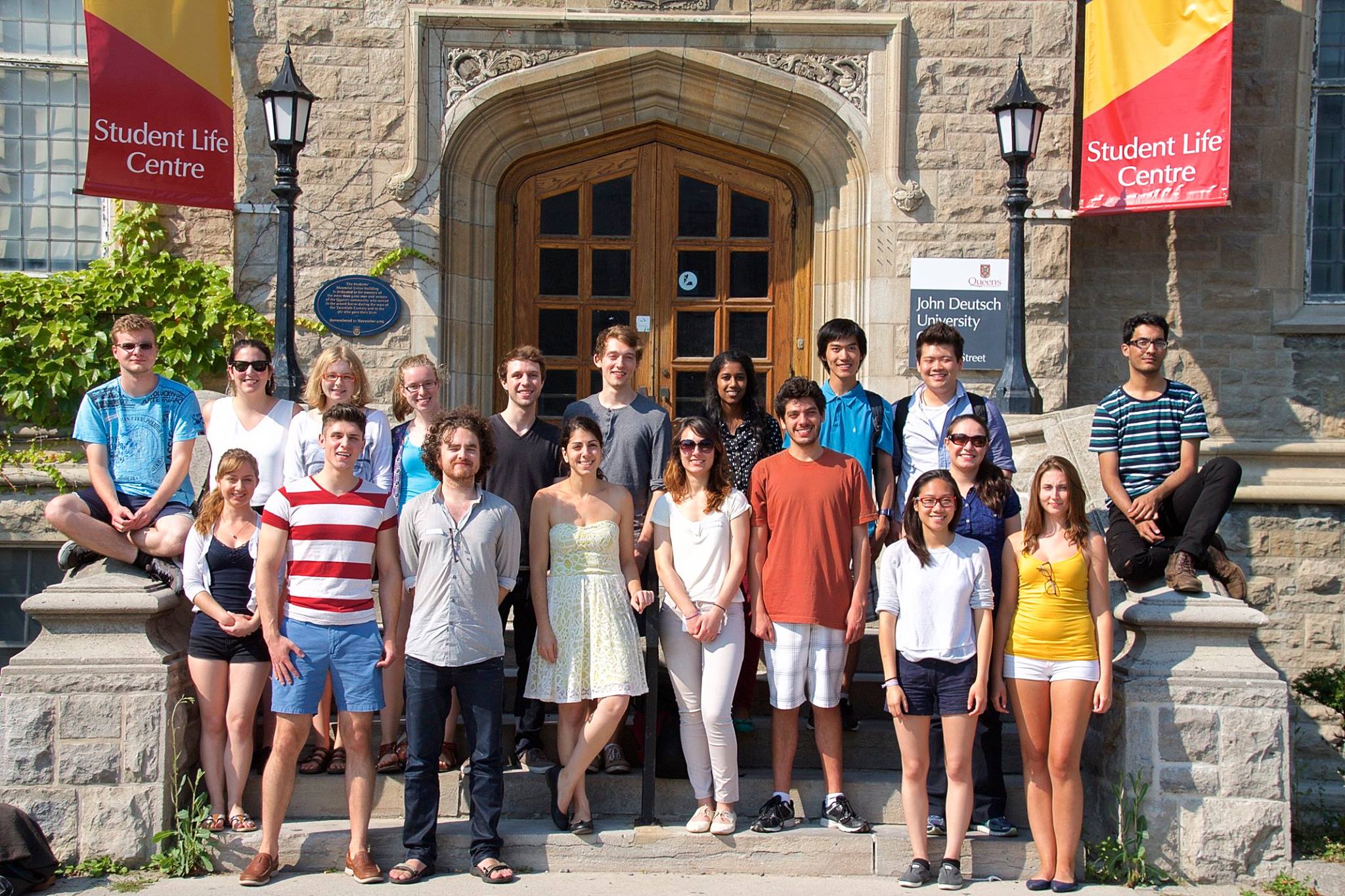Team:Waterloo/Collaborations
Collaborations
Who We Helped
University of Ottawa
We collaborated with the uOttawa iGEM team to design, implement, and analyze an ODE model of a genetic switch to determine under what conditions we could achieve tristability. We produced phase plane diagrams over a wide range of parameters to show their design was possible. This was a continuation of our cooperation with uOttawa from last year in their search for tristability. You can go to their wiki page and click “Modeling” in the sidebar to view their modelling work.
Aalto-Helsinki
We provided bulk data from the 2014 teams for Aalto-Helsinki's Team Seeker software tool to better search abstracts from all 2014 iGEM teams. We also provided information for the team's Collab Seeker tool.
Tec-Monterrey
We provided three plasmids to the Tec-Monterrey team from our 2014 project. The first plasmid contained DsRed, ermM, Amp, oriV (S. aureus) + oriV (E. coli), the second had oriT-Nes, and the third had the trs region.
Surveys completed and shared
We were asked to fill out and share a number of surveys, and did so for the following teams: University of Indonesia, IIT Kharagpur, Paris-Saclay and University College London.
Who Helped Us
University of Ottawa
We had some trouble with assembling some of our plant constructs, and the uOttawa team stepped in and helped us out. They assembled most of our B-set pCAMBIA plasmid [insert link] for us using yeast. From here we used Gibson Assembly to add our B2 target to complete the plasmid.
University of Toronto
Toronto provided some business expertise and related to our scale-up project, including some insights into what markets to look at and intellectual property rights.
Queen's University
The Queen's team helped us with understanding PyRosetta and its inner workings a little better, which helped us develop our PyRosetta tools.
oGEM
The five Ontario, Canada iGEM teams (McMaster, Toronto, Queen's, Ottawa, and Waterloo) have worked with each other over the course of the year to help build each other's projects. We provided general wet and dry lab support for each other, as well specifics for protocols, business advice, and contacts.
We had two meetups over the spring and summer, one to help with project ideas and identifying interesting topics to pursue, and the other to provide feedback on presentations, general advice for preparing for the Jamboree, and sharing wiki content to make set up and development easier.
